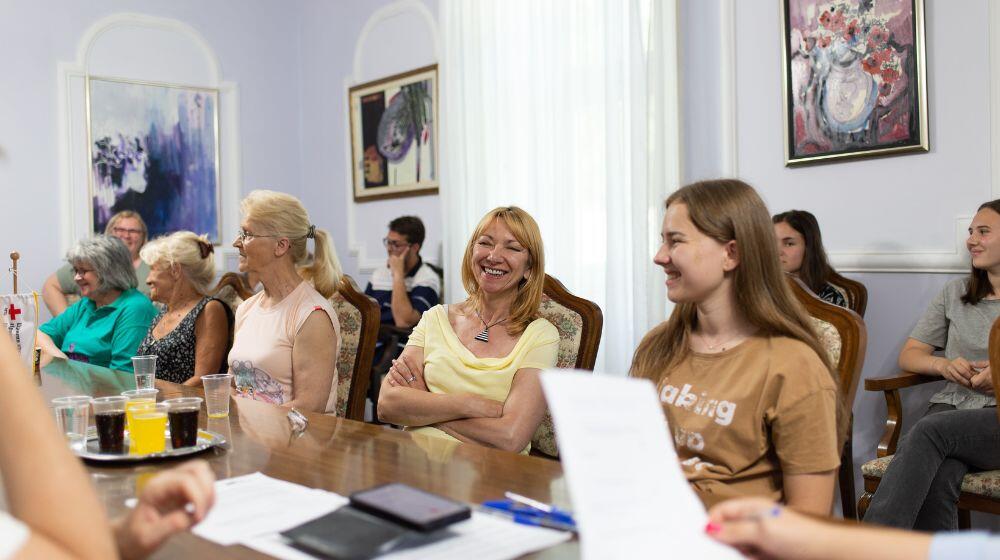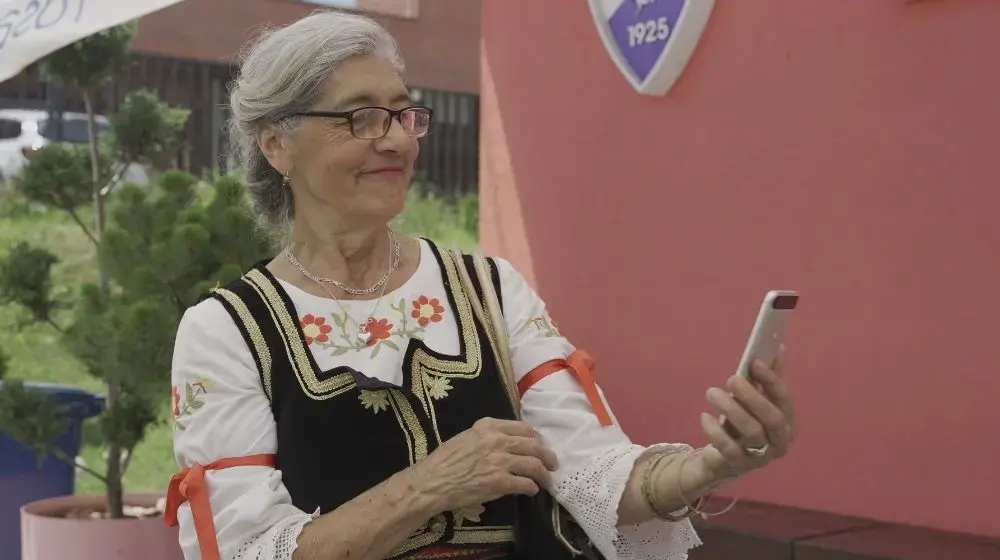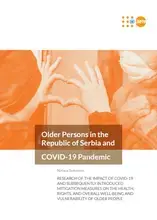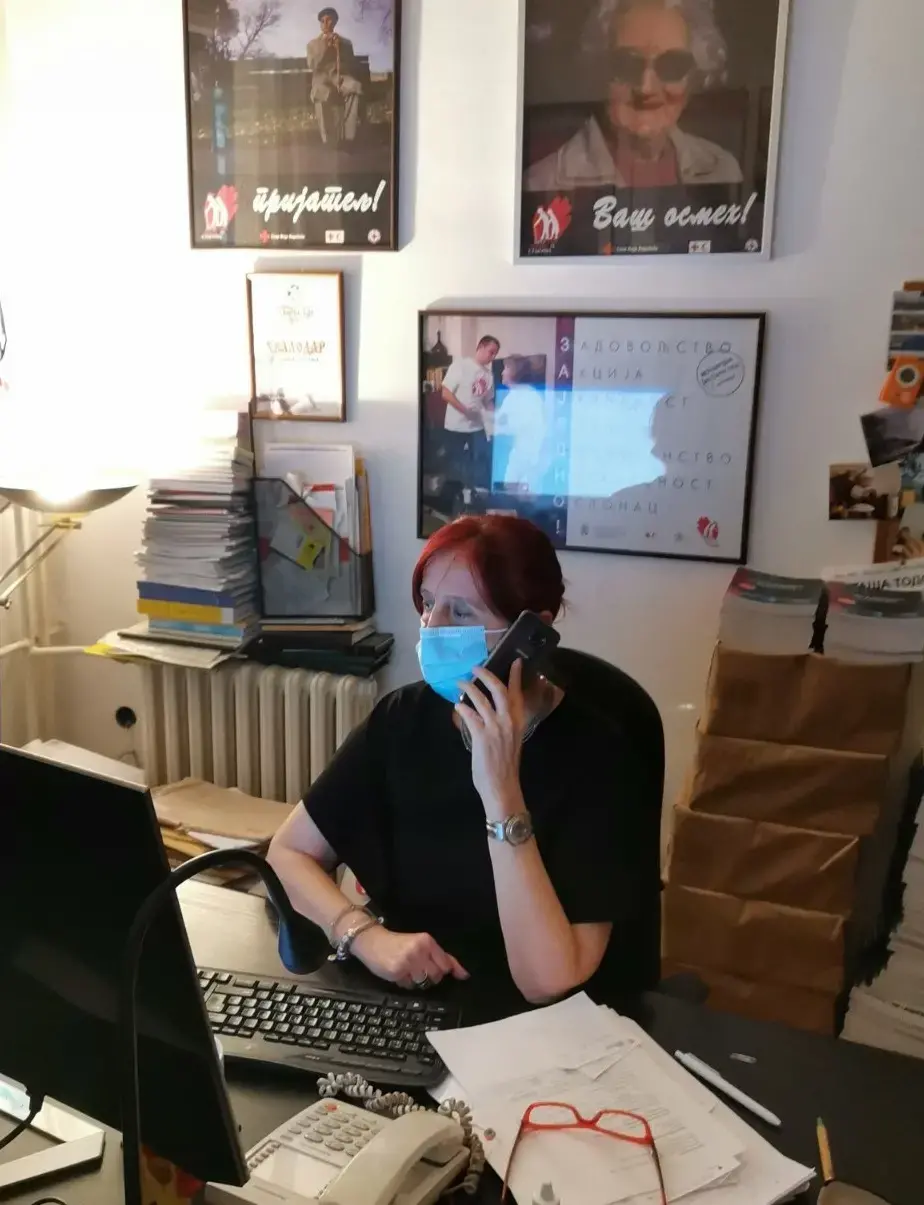Serbia, as many other European countries, is facing a global shift towards an ageing population. The percentage of people over the age of 65 is projected to increase from 9 per cent in 2019 to 25 per cent in 2050, while it is estimated that in Serbia in 2041 every fourth person will be over 65 years old. A combination of an extended lifespan, decreasing fertility and, in some cases, outward migration has already resulted in a rapid trend towards an ageing population in Serbia. While an ageing population is a positive reflection of medical advances as people are living longer, there are also a number of challenges associated with an increase in the number of older people, particularly related to health and well-being.
One of the key health risks among older people is loneliness, which negatively affects a large portion of the older population. According to the international report “Loneliness and social isolation among older people in the Eastern Europe and Central Asia region”: “Loneliness is a risk factor for ageing-related diseases and is detrimental for healthy ageing. Even though loneliness has as high a mortality risk as regular smoking or obesity, there has been relatively little effort put towards addressing loneliness in older people.” Report reveals as well that loneliness is not so much a lack of emotional support, but a lack of tangible support for day-to-day tasks and activities that is associated with loneliness.
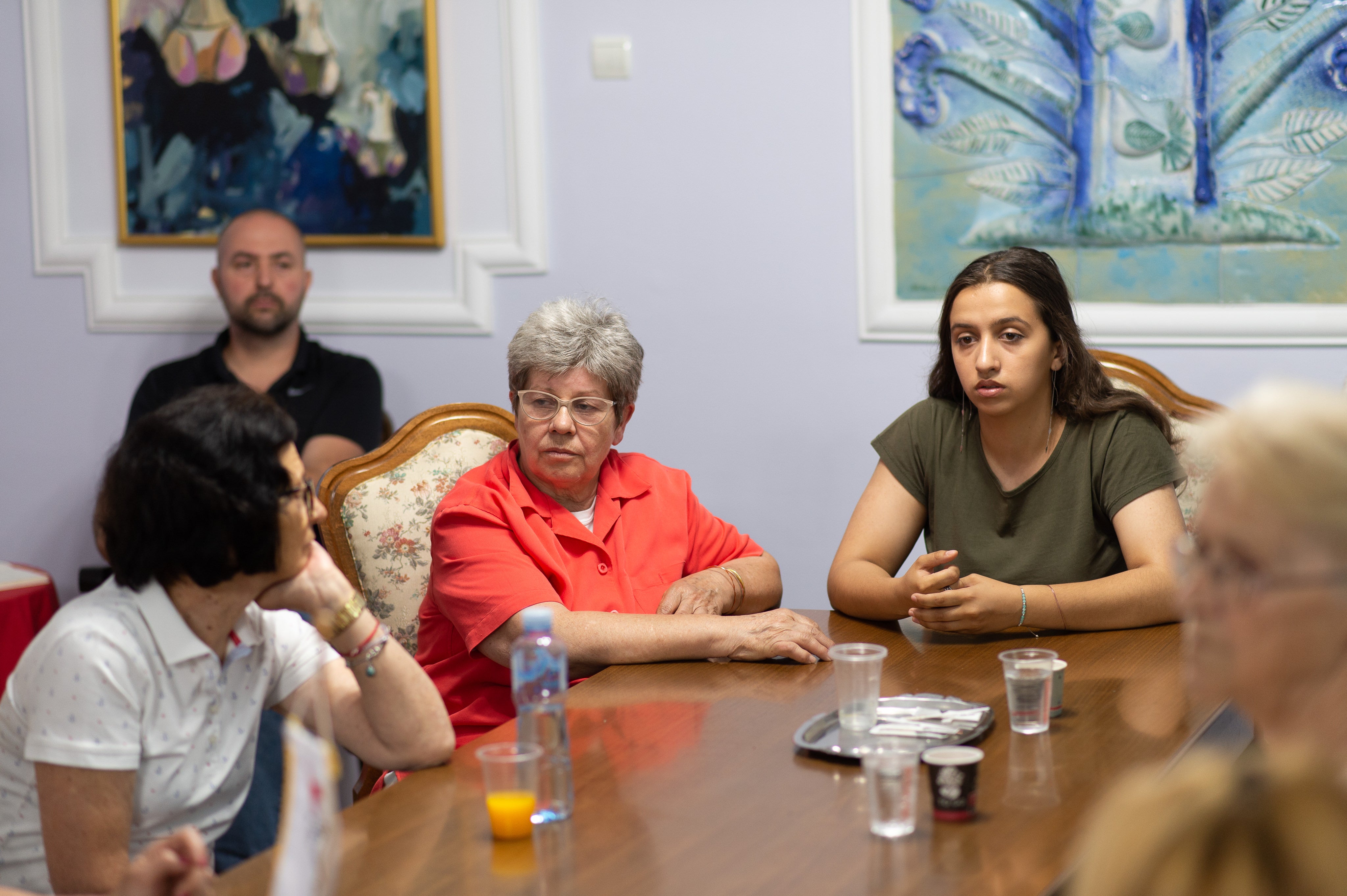
During 2022, numerous activities that promote intergenerational cooperation and solidarity were carried out in Serbia, as part of the program "EU Support for Social Housing and Active Inclusion" (EU SHAI), which is financed by the European Union and implemented by the United Nations Office for Project Services (UNOPS ) in cooperation with the United Nations Population Fund in Serbia (UNFPA). In six cities in Serbia, Boljevac, Kragujevac, Subotica, Sombor, Uzice and Zajecar, workshops brought together young and older on the way to creating a society for all generations.
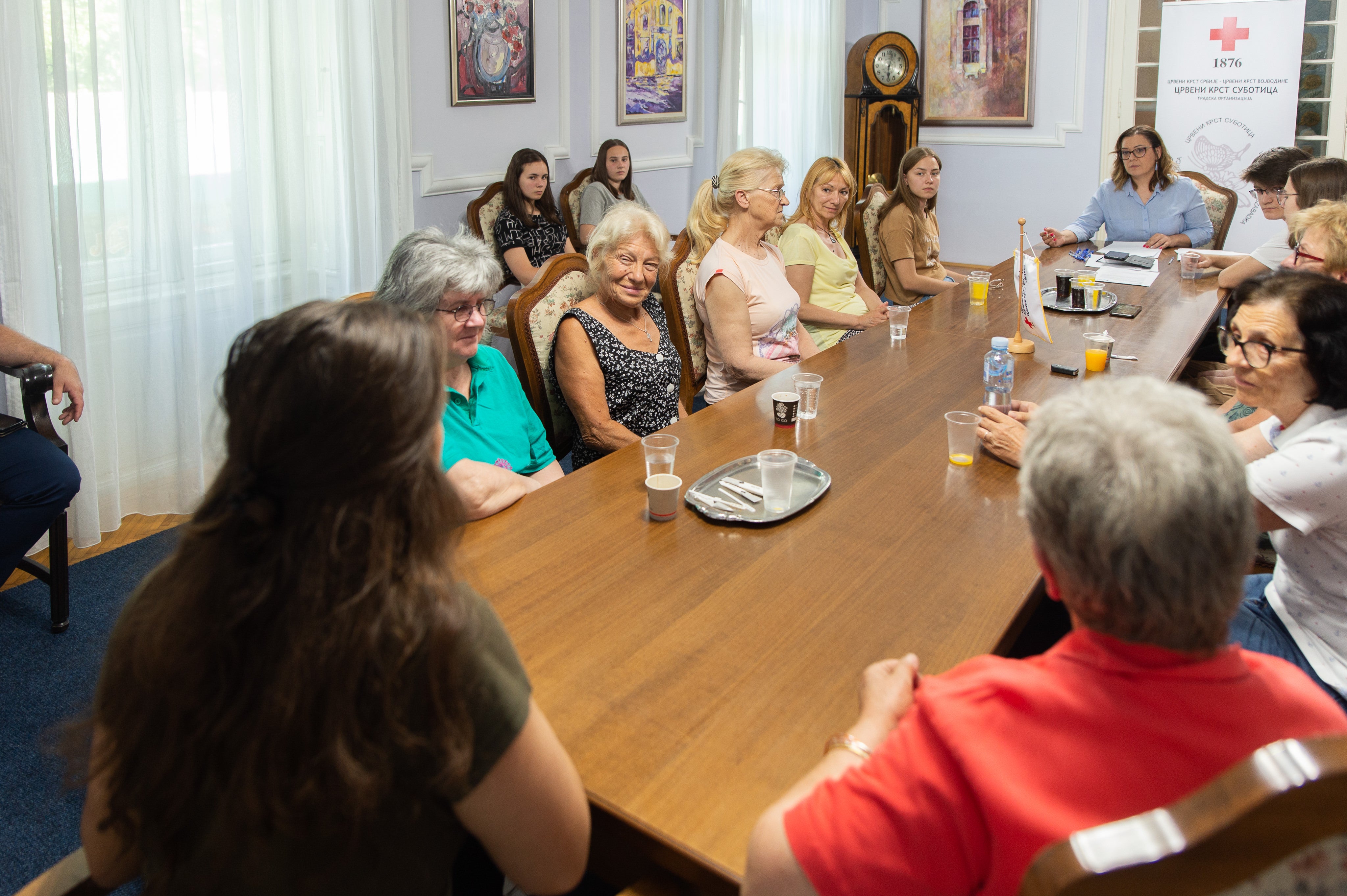
About activities and loneliness among older people, as well as the importance of intergenerational cooperation and the ways in which it changes the lives of the elderly, but also the younger, and therefore our social reality, we talk with Ms. Milka Ignjatović, the president of the Corner for Better Quality Aging of the Kragujevac Red Cross. Corner celebrates its tenth anniversary this year, a jubilee that they mark with pride. The core of Corner's work, especially since the beginning of the coronavirus, was in intergenerational cooperation and solidarity, so that it permeated all their activities.
What are the activities of the Corner for Quality Aging?
We usually start our activities with socializing: with coffee, tea, newspapers, magazines, and share some gossip. That's what the years allow us. Exercises go after that. We have a professional trainer and the exercises are always adapted to our age. After that, we laugh together, with jokes and banter, different experiences that we older share with the youngsters or they share with us.
How many people participate in intergenerational cooperation workshops?
Before the pandemic, the workshops were attended by about a hundred people from different generations, from the city of Kragujevac and the villages around Kragujevac. Intergenerational cooperation is very important to all of us. Often our guests are the youngest. Together, we and the youngest get a good average. We rejuvenate, they come to have fun. Our corner always smells like pancakes to them.
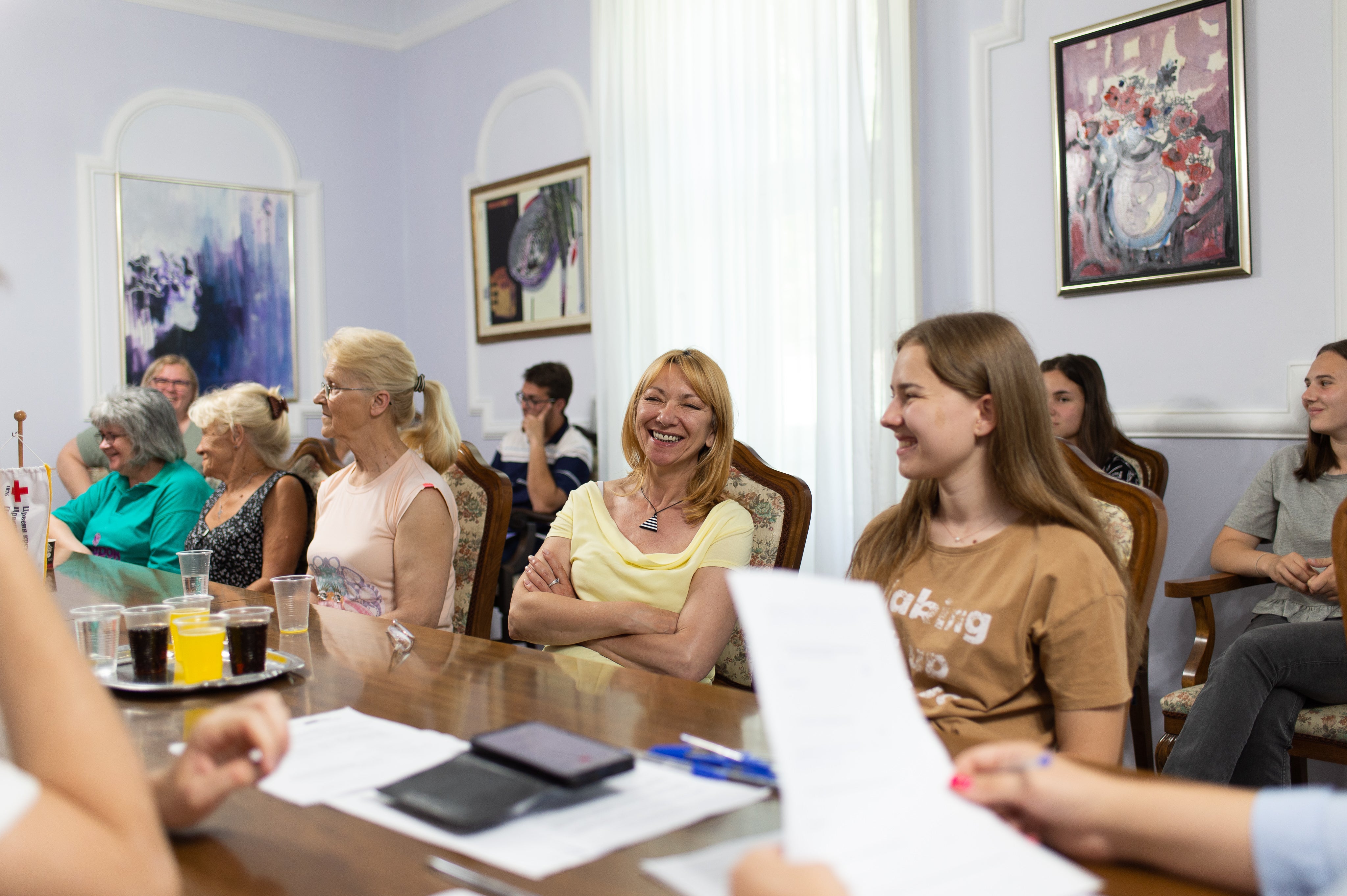
What kind of intergenerational program do you cherish?
We cherish everything equally: both culture and tradition, historical events from recent and distant history. We act, we sing in an intergenerational choir, we paint together. We go on trips. It was only during the corona pandemic that we failed to go on trips, like everyone else. We also deal with humanitarian work. For every major holiday, we try to make everyone happy, especially those in need, with our Basket of Goodness. Women in the Corner work hard, they knit. For the New Year, we made children from institutions happy with hats, scarves, socks... We also help the youngest in the form of diapers or various handicrafts.
Your intergenerational solidarity is also reflected in two special phones. What are they about?
A lot has changed in recent decades, so today people don't even say good day to each other. Along with that trend, we have a phone called "Good day. How are you?"
We invite our older friends, or younger ones, to ask how they are, how they spent their day, if they have any problems. People are always delighted, because some people live a life in which a day goes by without anyone saying anything to them. For us older people, these conversations help a lot, because there are many lonely people. Our children are all over the world, but we are alone.
During the pandemic, we also had a "Good Phone". That was the way we could find out what was happening, whether we were all okay. Together with the younger ones, we took someone to the doctor, and someone did the shopping. Young people are our strength and future. They help us a lot. During the pandemic, they showed themselves the most. It was easy for me to get up at four o'clock in the morning, while there was quarantine, because I know that those wonderful children, who walked in front of us smiling, are waiting for me. They are amazing. They gave us masks and we all went together. During the corona days, it made us very happy. Together we continue to educate ourselves, we have a series of surveys, research on the rights of older people. Our member spoke at the UN headquarters in New York about the rights of older people. All these activities fulfill us in these years.
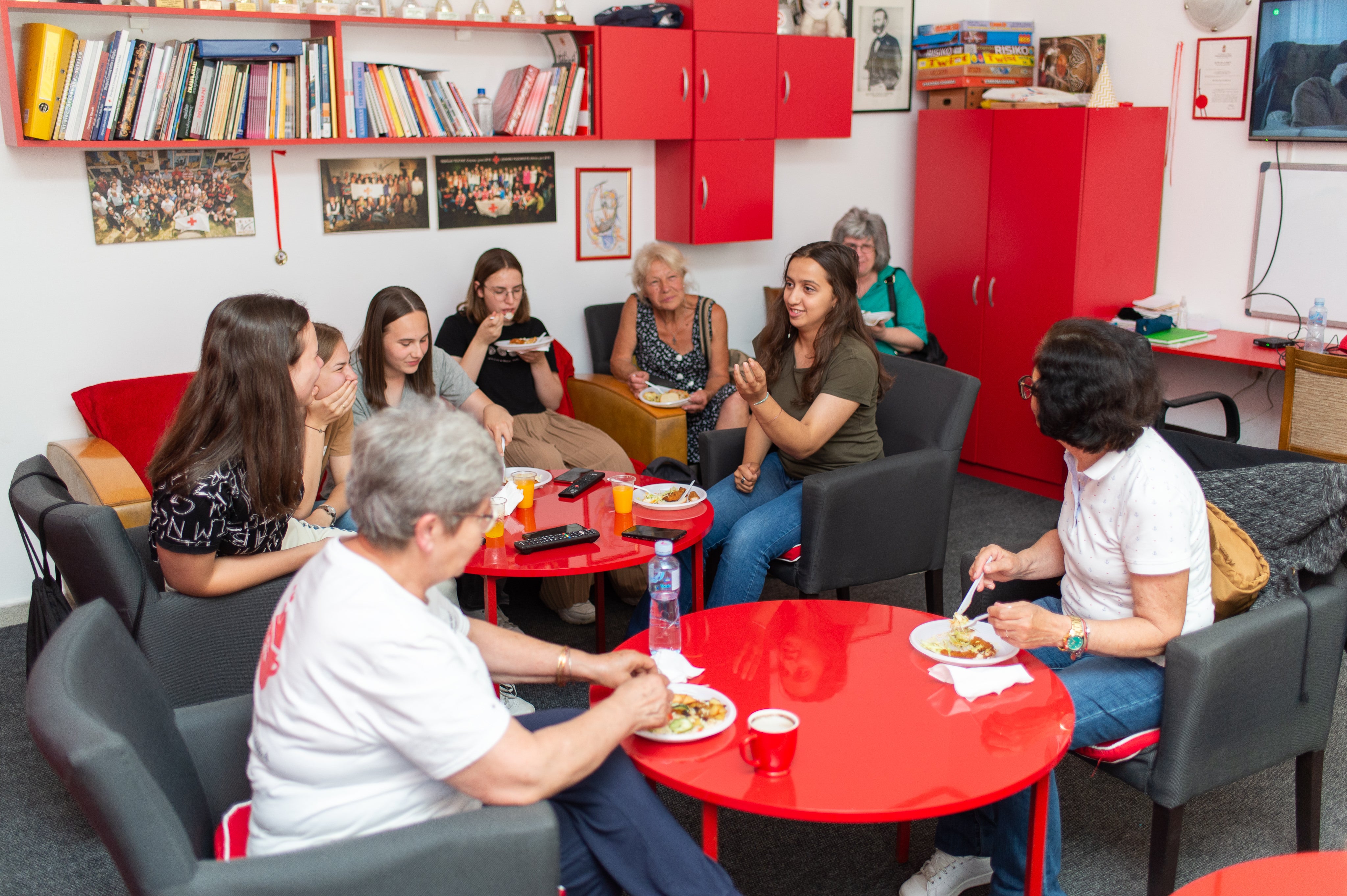
How can intergenerational solidarity reduce loneliness in older people?
Our young volunteers are very important to us. Not a day goes by without one of them praising us. Such things mean something to us. The youngest from the kindergarten are also very frequent guests. Believe me, they participate too. We had workshops, someone brought a tambourine, someone an old camera, and they brought new, modern mobile phones. Thus together we show each other what we know, we exchange knowledge and experiences. Our volunteers are the same age as our grandchildren and children.
We older also write beautifully, mostly travel stories. Then we read them to the youngest. We received awards and praise for our stories. We wrote about "Everything will pass". During the corona pandemic, it was important for us to share with young people the idea that everything will pass. They may be impatient and nervous, but I guess we are used to it, having survived wars and all. And we cut them some slack. We talked about how everything would end, how they would have time for everything: school, socializing, fun.
Intergenerational cooperation is part of us. It makes us happy. It is an immense joy to spend time with young people.
***
The activities of the Corner for Better Quality Aging are part of the program "EU Support to Social Housing and Active Inclusion program" (EU SHAI), which is financed by the European Union and implemented by the United Nations Office for Project Services (UNOPS). The component of intergenerational cooperation and solidarity is organized as part of the program Support for the inclusion of the older population and Roma minority, implemented by UNOPS in cooperation with the United Nations Population Fund in Serbia (UNFPA).

